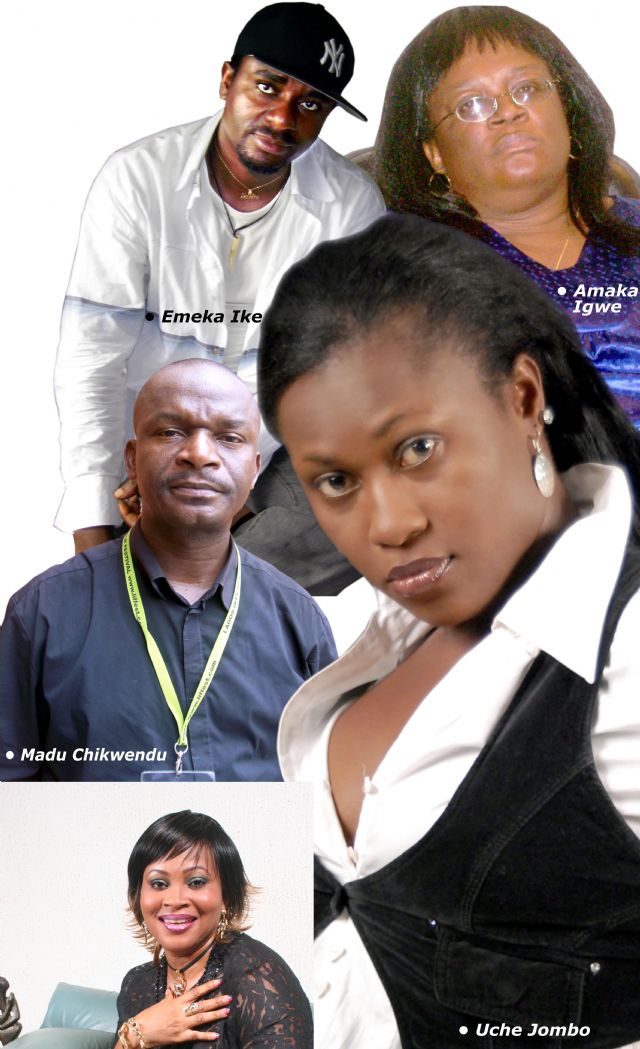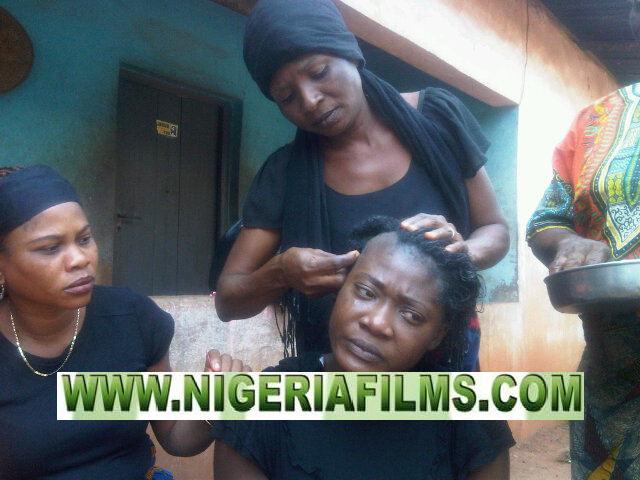
For four days, Terra Kulture, one of Nigeria’s foremost cultural centres came alive when practitioners of the Nigerian movie industry gathered to engage themselves through activities like screening of documentary pieces, documentary training workshops, round table discussions and symposia.
The event, iREPRESENT (iREP) International Documentary Film Festival that had about 10 renowned professional filmmakers, was organised with the aim of promoting independent documentary features with emphasis on training and skill development to the benefit of the young, aspiring and practicing film makers in the country, especially for those with flair for documentary films.
The iREP 2011 is the maiden edition of the documentary film festival, which went with the theme, ‘Africa in Self Conversation: The Documentary Film Intervention’ that is designed as an annual event. The theme for this maiden edition is ‘Can Documentaries Provoke Change?’ Some of the renowned professional filmmakers who were part of the activities include Jihan El-Tahri, producer of Behind the Rainbow, a documentary that has been programmed as the festival opening film; David Max Brown, producer of The Manuscripts and Timbuktu, directed by Zola Maseko from South Africa.
The festival served as an opportunity to hold a symposium on the fate of the Nigerian movie industry. Titled ‘Motifs of Black Consciousness in African through Films,’ and anchored by the director general of the Centre for Black and African Arts and Civilisation (CBAAC), the symposium had industry greats like Onookome Okome, Awam Amkpa and Sola Olorunyomi doing justice to the topic.
In the views of Okome, who has been involved in the industry for over a decade, sometimes, there is a very thin line between what functionality film in Africa is and what actually African art is.
“I have seen all the documentary films about the Nigerian movie industry and they were made by people from outside Nollywood,” he said.
In addressing the issue of black awareness, Okome said, the important thing is deciding what is black and whether black is good or bad.
African documentaries, he said, have come a long way in shaping our identity but the real issue is in harnessing their usefulness in throwing a positive light about the continent.
Nigerian actor, playwright, and professor of dramatic arts, Amkpa, however, threw in a dimension to the discussion when he stressed on the importance of documentary films to addressing societal issues. According to the playwright, there is an assumption that film, as a form of art does contribute to the country’s development.
“Nigeria is at a very prime state in being one of the leaders in documentary filmmaking. The challenge for the filmmaker is how to diversify their story telling so that we can actually move from our present state to the documentary format,” he said adding that, they will be truly appreciated as well they will be creating new publics for their works.
“There is an overwhelming public for documentaries but there are other publics that are begging for their consciousness and for communication with each other. By that, filmmakers have an opportunity to connect them with the kind of stories they tell especially using the medium of documentaries which really is a subjective medium. It is a way of commenting on social and political realities and creating a strategic political platform. Today, we are seeing a democratisation of the medium of documentary because filmmakers can actually shoot their materials for Internet purposes or for a PDA format,” Amkpa said.
Buttressing Okome’s point, Amkpa further stated that filmmakers could employ their now acquired literacy in a form where “we can tell our own story.
“Nollywood or people inside the industry can actually tell their own story about what they are actually doing, about people who started this.”
In the words of Babawale, “documentary films expose the challenges of life and how we can surmount those challenges.”
Though, he said, he is not an expert in issues concerning film, it is not difficult to draw a line with where documentary marries art.
iREP is a touring film festival convened by three Nigerian culture figures to promote independent documentary films and global awareness about the role of documentary films in deepening participatory democracy.
They include Femi Odugbemi, producer, director, past President of Independent Television Producers Association of Nigeria (ITPAN ) & CEO of DVWORX Studios; Jahman Anikulapo, culture journalist and activist, programmes director of Committee for Relevant Art (CORA) and Project Director of Culture Advocates Caucus, (CAC); as well as Makin Soyinka, culture activist, filmmaker and Director of The Lagos Film Office.
Doing an appraisal of the festival, Odugbemi said by his rating, it went well as to an extent, the goals for its staging were met.
Some of their objectives, he said, include promoting documentary as a popular medium of communication, engaging stakeholders to a forum where boggling issues can be addressed.
The festival, Odugbemi said, further served as a medium of honouring the industry greats as awards were presented to those deserving.
“We also hoped to bring people together under a conducive environment. The trainings we organised on digital filmmaking, we hope, will further boost the industry in Nigeria as more than over one hundred people were trained from the feedback we have received from the participant of the training, the objective of holding it was met,” he added.
Some of its other objectives include creating a platform of awareness and expression for aspiring and practicing filmmakers, and providing a forum for people’s ingenuity to be showcased without prejudice to style or subject.
The festival also served as an opportunity to celebrate the best work in the world of documentary films providing an insider’s look into world cultures and technological advancements and offers an intense learning programme during Festival week on a mission to develop and nurture the talent of young filmmakers in Africa and internationally.
Each of the participating filmmaker personally present at the festival had an opportunity to present his films and entertain questions from the audience.
The maiden edition of iREP, with the theme ‘The Impact Of Documentary Production In A Developing Society/Economy’ had sub topics that sought to address issues in filmmaking.
The organisers say the workshops and panel discussions that will follow aim at introducing young filmmakers to the many opportunities documentary production offers.
“Hence at least four professionals, specialising in key departments of documentary film making have been invited to conduct workshops and clinics in the course of the three day event,” Odugbemi said.



















